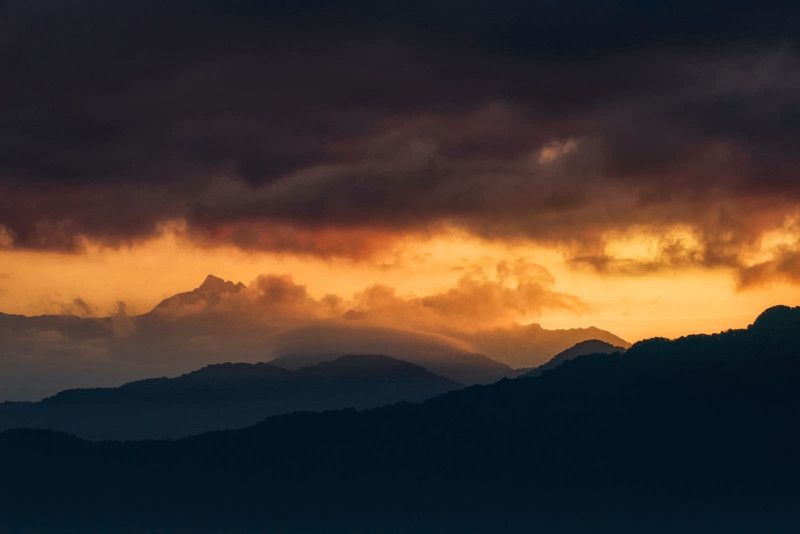
You’ve likely heard it said that golden hour is by far the best time for photographing landscapes. We have a lot of colors and dramatic light and atmosphere during that time.
Let’s start with what golden hour is. It is the period of time just after sunrise and just before sunset where the light is more colorful and saturated, and it will almost always come to any landscape photographer’s advantage. The question is, how?
Here I am sharing my five favorite tips to dramatically improve your golden hour shots! Let’s begin.
1. Look for Side-lit or Back-lit Subjects
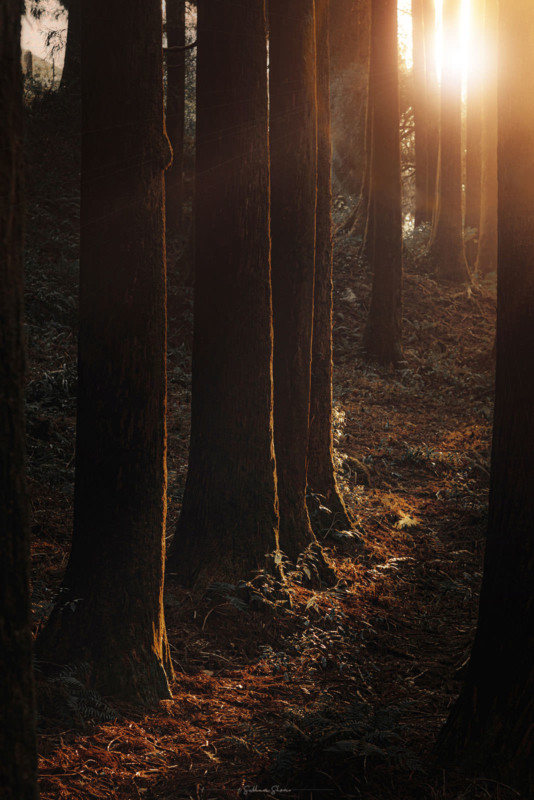
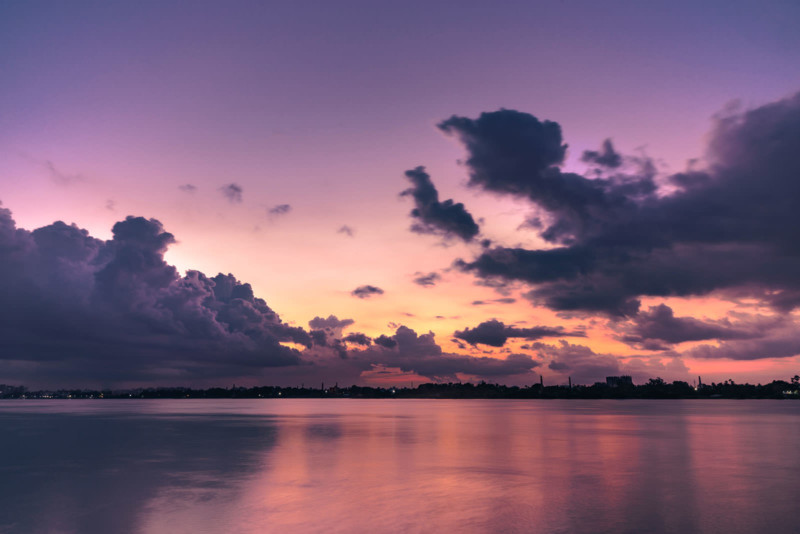
Even when you are shooting photos in golden hour, the light needs to be dramatic on your subject. The composition will hugely vary on this basis. Look for subjects that are lit from the side or back, giving a stunning effect on the whole image.
From the above examples, in the first image from Chatakpur, the light is hitting from the side of the trees in the woods, and in the second image from my hometown, it is hitting right from behind the clouds, creating a dramatic scene. You can see how enthralling the overall image becomes when the light falls on them from the best directions possible.
2. Check for Contrast in The Frame
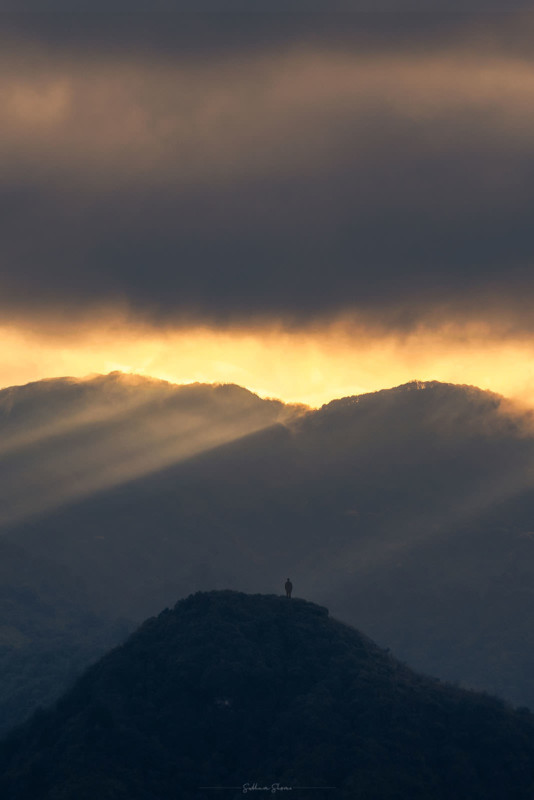
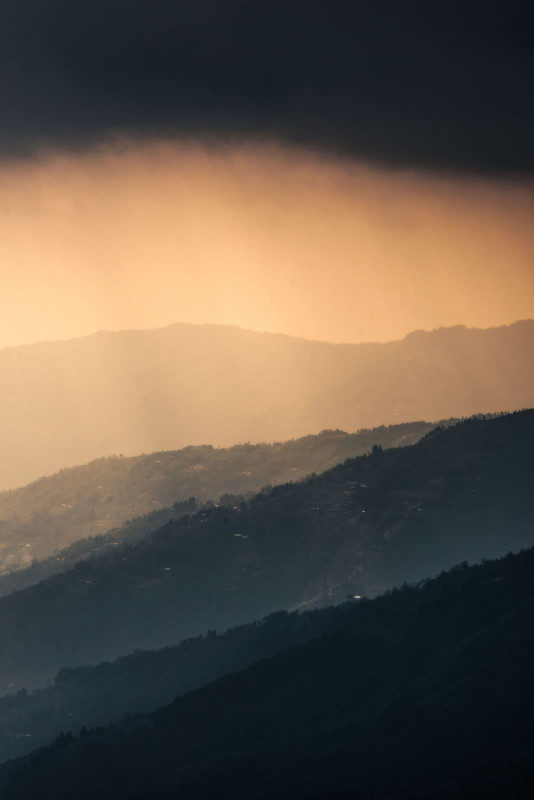
Make sure to have a habit to look for contrast in the frame because golden hour will be automatically providing it to you, you just need to find it. The highlights will be very bright and the shadows will be equally dark, so, by definition, you already have contrast. Utilize it in the best way possible.
In the above two images (the first one taken at Rishyap, North Bengal, and the second one taken at Simana, Nepal border), you can find contrast between foreground and background. In the first one, the man standing on the nearby cliff and the clouds provide opposition to the rays, in the second one, it is the layers of the mountains that have supported the clouds in creating the immense contrast in the frame.
3. Use Filters and get Creative
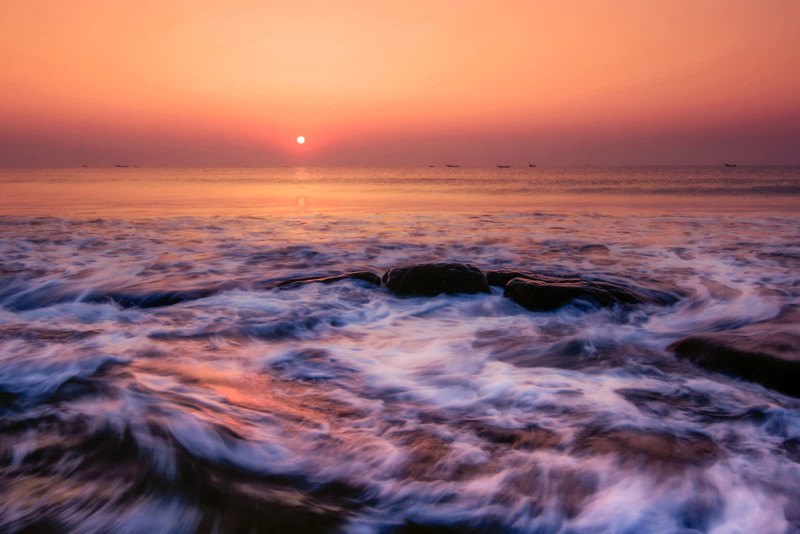
Use ND filters and create stunning long exposure and/or slow shutter images which will have an absolutely different feel in the images as a whole. This technique will obviously work with images where there is motion, so try it on your waterscapes – seas, oceans, waterfalls, and the like.
In these images, the first one is a sunrise shot at Gopalpur while the second one is a sunset shot at Kanyakumari. In both the images, you can see how the movement of the water has been caught in a very creative way, thus making them different.
4. Try Silhouettes
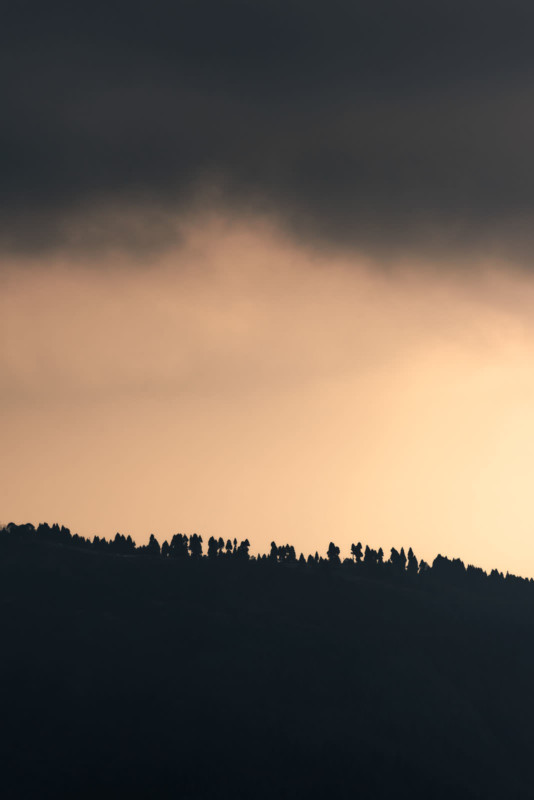
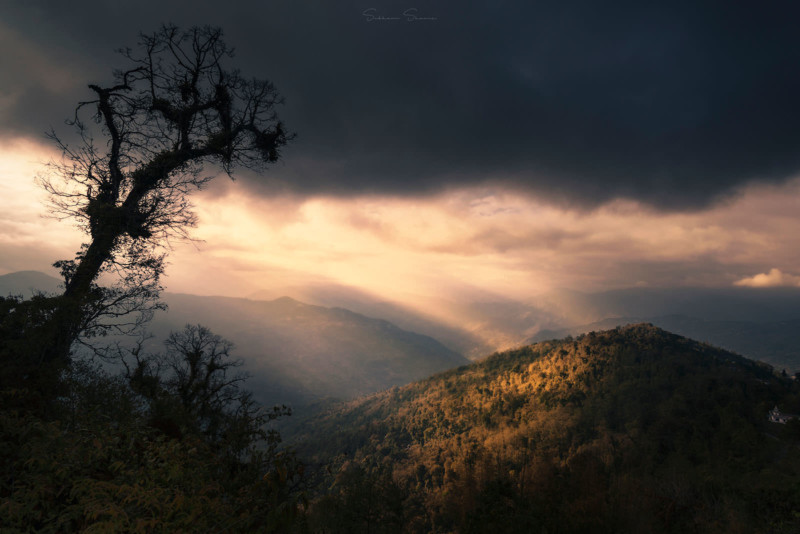
Since we already know golden hour provides a lot of contrast and good back-lit images, combining them will give you brilliant silhouette structures to work with. Choose the correct subject and create a silhouette out of it by putting it properly in the frame. Either put them in your foreground (what I mostly do) or in the midground, get creative with silhouettes.
In the first example from Chitre, I have put the range of pine trees on the mountain as a simple silhouette for a clean image. In the second example from Rishyap, the tree in the foreground is the silhouette and providing balance to the main subject which is the hill beside on which the sun rays are falling.
5. Work with both wide and tele lenses
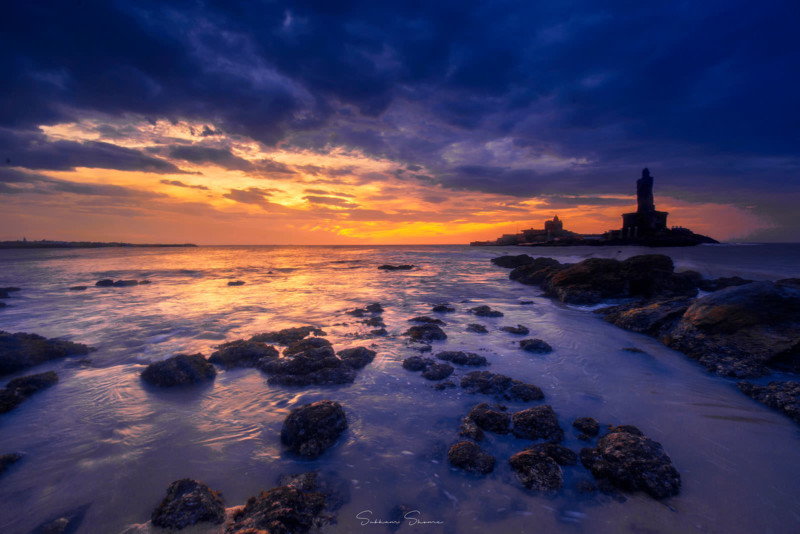
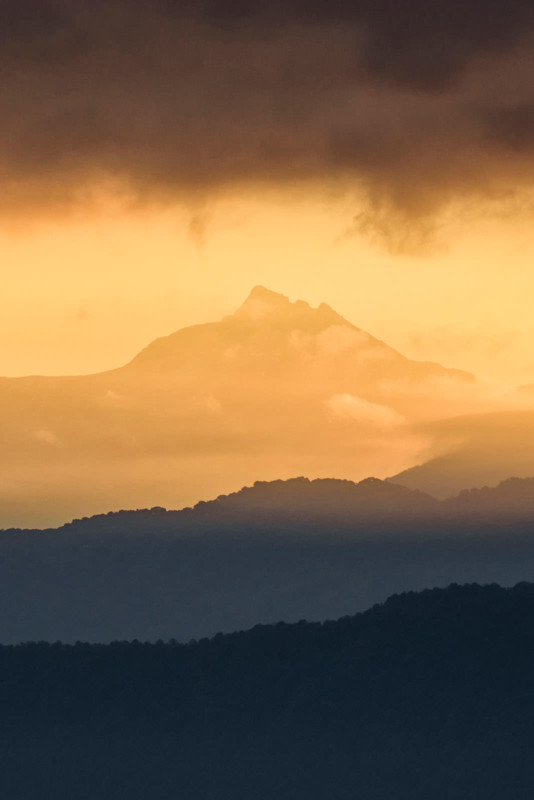
Use both wide-angle and telephoto lenses to create more dramatic frames during golden hour. If you find an image where there is a lot of interesting elements in the foreground while the background creates more of a subject, use an ultra-wide or a wide-angle lens, like in the first photo from Kanyakumari. In the second photo from Rishyap, the mountain was very far away and I used my telephoto lens to take the shot.
Conclusion
Shooting at the golden hour is one of my favorite things to do in photography, if not the favorite one. I have shot a huge number of images at this time of the day. Along with blue hour, this time of the day provides stunning light conditions for every landscape photographer to use. I hope this article helps you with some basic ideas for improving your golden hour photography.
About the author: Subham Shome is a landscape and travel photographer based in Agarpara Kolkata, West Bengal, India. The opinions expressed in this article are solely those of the author. You can find more of Shome’s work on his website, Facebook, and Instagram. This article was also published here.